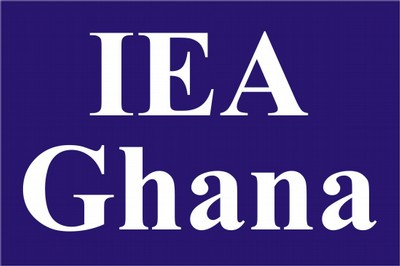The Institute of Economic Affairs (IEA) is urging the Electoral Commission (EC) to publish well-defined electoral programmes with definite timelines.
The IEA in a press statement issued on Monday said this would be crucial in ensuring clarity and certainty in the minds of both the EC and political parties regarding all that must be done before general elections are held.
Friday 29th August marked a year after Ghana’s historic election petition and some political parties, lawyers and analysts have expressed concerns about the EC’s reluctance to implement some of the electoral reforms suggested by the nine eminent judges of the Supreme Court who sat on the case.
President of the nine member panel of justices, William Atuguba for instance, recommended that the E.C should audit the voters’ register. He also suggested that the Commission provides a supplementary register and also re-examines the caliber of presiding officers appointed at various polling stations, among others.
The Electoral Commission has so far not announced any plan to implement any of the recommendations from the judges.
“The trust to be built through this process could help ensure proper collaboration between the Political Parties and the EC towards the conduct of credible and largely uneventful elections,” it added.
Below is the full statement issued by the IEA
As part of The IEA-GPPP Electoral Reform Project, the various proposals for electoral reform submitted by the IEA under the aegis of the Ghana Political Parties’ Programme are being highlighted one after the other in a series. We intend to articulate them over, and over and over again until the nation’s electoral system is purely fine-tuned. In the first of the series, we will highlighted and discussed the need for General Elections to be held in November so that if there is the need for a run-off or challenge, these may be disposed off before the President is sworn in.
Recommendation
In series 2, we discuss Recommendation Two (Two). Under this, The IEA is calling on the Electoral Commission to publish well-defined Programmes with timelines to ensure certainty in the implementation of its activities.
In the lead up to the 2012 elections the Electoral Commission engaged itself in a number of very crucial activities of considerable constitutional and electoral significance. These include Biometric Voter Registration, Exhibition of Voters’ Register, Review and Creation of additional forty-five constituencies and seats in Parliament, etc etc. Needless to say, these activities undoubtedly overstretched the capacity of the Electoral Commission to successfully undertake and accomplish all its pre-election programmes and still organize the 2012 General Elections successfully. But why should all these activities be undertaken at the time when key actors in our electoral process, particularly the Political Parties were very busy touring all parts of the country campaigning? Why should we sit down and wait till the eleventh hour? Things done in a rush are susceptible to costly mistakes. Indeed such crash activities are a recipe for distrust, tension and the raising of unnecessary alarms over issues that could ideally pass without many qualms from the key stakeholders.
The Electoral Commission must therefore avoid crash time table in the conduct of future elections in Ghana as this does not promote the cause of both the EC and the Political Parties. To ensure that this does not happen in the future, time lines should be written indicating important issues such as:
- Opening of Voters’ Register and Registration of Voters who may have turned 18 or who have not registered already
- Exhibition of Voters’ Register
- When Political Parties are expected to receive copies of the Voters’ Register
- All other pre-election activities that the EC intends implementing.
This recommendation is very crucial in ensuring clarity and certainty in the minds of both the EC and Political Parties regarding all that must be done before General Elections are held. The Political Parties knowing these well-defined activities and timelines for their implementation would be better prepared to align their campaign activities to accommodate the EC’s pre-election programmes. The trust to be built through this process could help ensure proper collaboration between the Political Parties and the EC towards the conduct of credible and largely uneventful elections.
So, once again, over to you, Mr. Chairman of Electoral Commission. Publish well-defined Programmes with timelines to ensure certainty in the implementation of your activities. Please do not run crash pre-election programmes. Meet with the Political Parties regularly to discuss and thoroughly brief them on all pre-election programmes with well-respected timelines. Meeting with the key stakeholders at regular intervals require that the Inter-Party Advisory Committee (IPAC) is institutionalized. To this, we shall turn our attention in the subsequent series.
Please watch out for recommendation Three (3) next week.
By: Marian Efe AnsAH/citifmonline.com/Ghana


